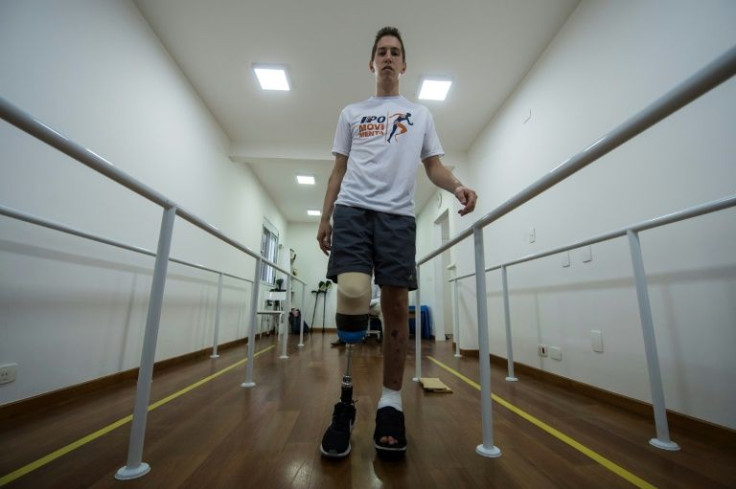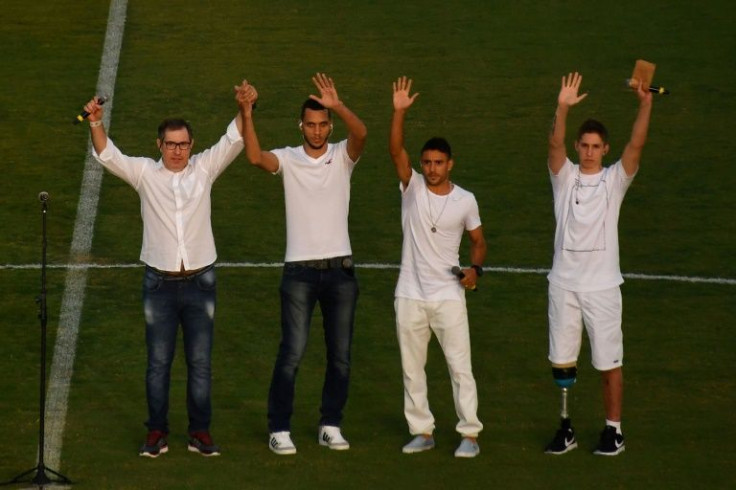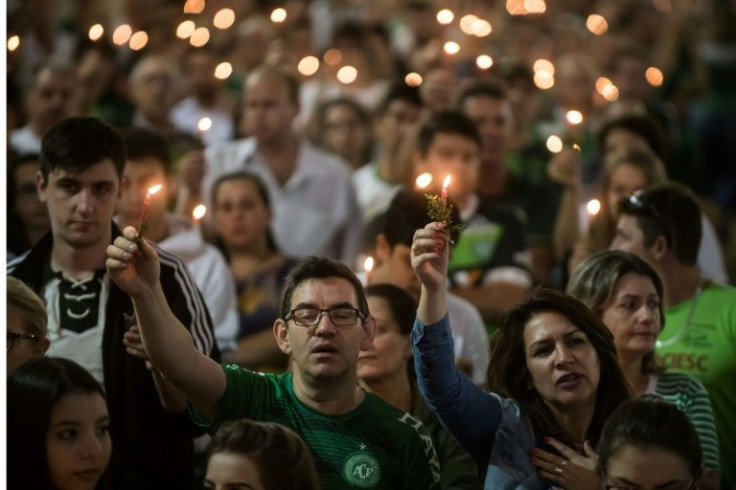Brazil Football Crash Survivor Finds New Life In Music
Jakson Follmann remembers the moment the plane's engine died and everything went black. Then, an intense pain, and cold rain falling on his body.
Drifting in and out of consciousness, he called out for help, until he saw the beam of a flashlight shining through the wreckage of the fuselage.
It has been five years since the plane carrying Follmann and the rest of Brazilian football team Chapecoense Real ran out of fuel on the way to the final match of the South American Cup, slamming into the mountains outside Medellin, Colombia.
Seventy-one people were killed in the crash. Follmann, now 29 years old, is one of six who survived -- though he lost his right leg below the knee.
"We were all so happy, so excited to go play for the title. Then from one day to the next, I lost my friends, I lost the source of my livelihood," he said.

"After that, my biggest dream became something so simple: just to be able to walk again."
In the half-decade since, the one-time goalkeeper from the southern state of Santa Catarina has had to reinvent himself.
His football career cut short by the crash, he has found new life as a motivational speaker and Brazilian country singer.
"As a kid, I had two big dreams. Becoming a footballer came first. Then fate brought what it did, and now I'm living my second dream thanks to music," he told AFP.
Follmann, who has released four "sertanejo" (Brazilian country) singles, spent two months in the hospital after the crash undergoing treatment for 13 fractures, including two severe ones in his upper spinal column.
He said he turned to music and his Christian faith to get him through.

"I had two options after the accident: sit around feeling sorry for myself, or lift my head up and face life," he said.
He chose the latter.
He got a tattoo on his right arm -- a picture of himself in his Chapecoense jersey climbing a staircase with his prosthetic leg, a giant dove in the sky above.
By 2019, he had recovered so well he was able to appear as a contestant on reality TV show "Popstar."
He didn't just participate in the show: he won, with sertanejo songs that pulled at the audience's heartstrings.

Follmann, who moved to Sao Paulo last March, played for Brazil's under-20 national team and several local clubs before joining Chapecoense.
He had played just one official match for the underdog club, which was having the best season in its history before the crash.
Just three players survived.
One, Alan Ruschel, today plays for first-division side America Mineiro. Another, Neto, tried to return to football, but hung up his boots in 2019 after struggling to overcome the injuries left by the accident.
Follmann, for his part, says in some ways his new job is not so different from his old one.
"As a footballer, I practiced every day. Music is no different," he said.
He has set himself a new goal.
"I want to reach people," he said.
"Music can transform lives, like it transformed mine."
Follmann also gives motivational speeches at business events about overcoming adversity, delivering a message of hope.
And he has a soon-to-be-published book, a mixture of memoir and self-help guide.
"I had to take myself apart to put the pieces back together again. It took a lot of patience," he said of the lessons learned on his journey.
Today, he usually wears his prosthetic leg unhidden, and jokes about it in posts on social media.
Five years on, his mantra is a message that for him has ceased to be a cliche: "Live every day as intensely as if it were your last."
© Copyright AFP {{Year}}. All rights reserved.





















